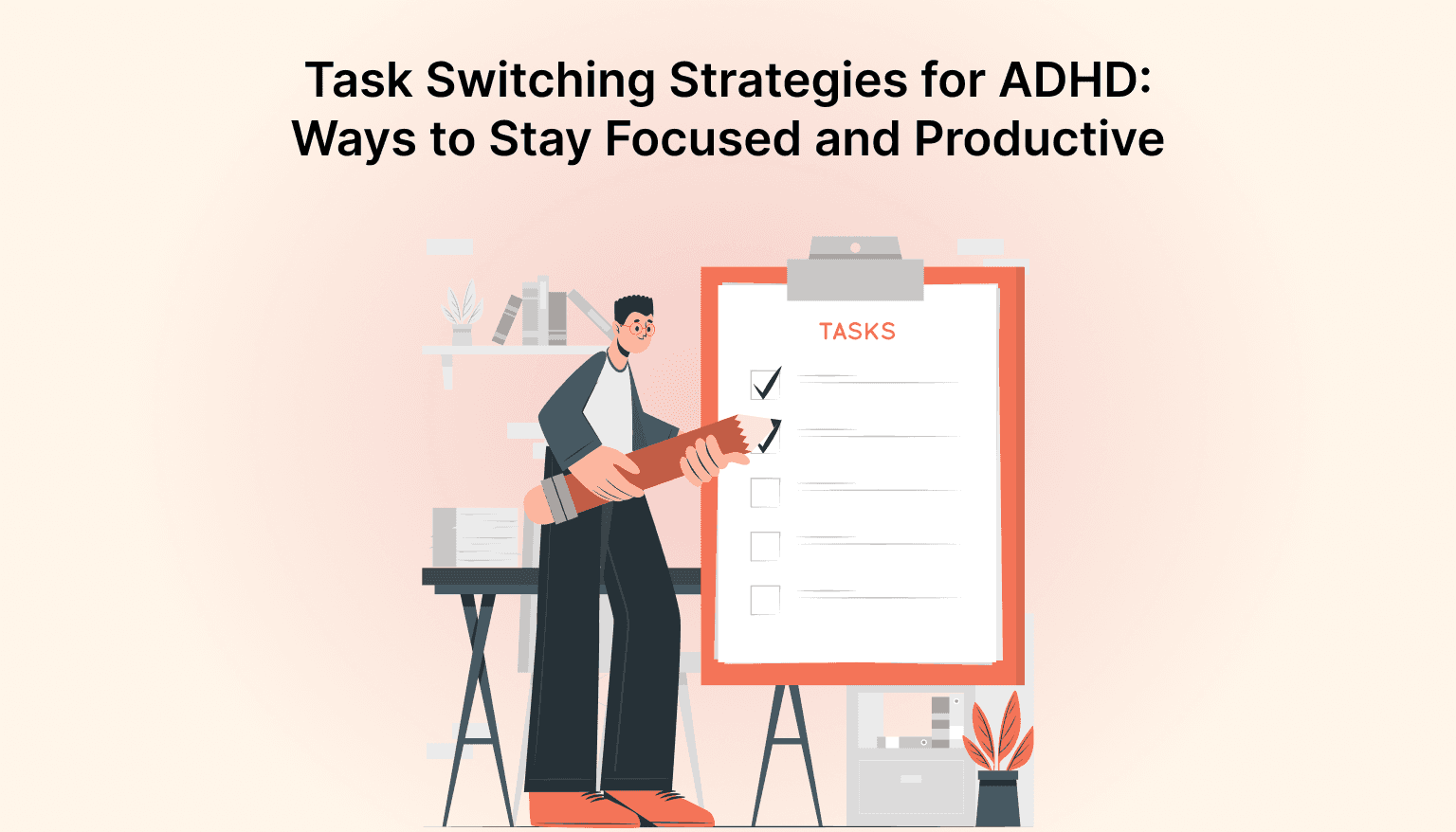10 Strategies for Mastering Time Management

9
"Time is what we want most, but what we use worst." – William Penn
We all have the same 24 hours in a day, yet some people seem to achieve more, while others constantly struggle to meet deadlines and manage their tasks. The key difference often comes down to time management. Without a clear strategy, it's easy to lose track of how you're spending your time, leading to wasted hours and unnecessary stress.
Mastering time management isn't a skill reserved for a select few. It's something anyone can learn with the right approach. Imagine being able to handle your daily responsibilities, hit your goals, and still have time to unwind. It's possible, and with a few smart changes, you can take control of your time and start seeing better results in both your work and personal life.
In this blog, we'll explore practical strategies that can help you manage your time better, boost your productivity, and get more done with less effort. These steps will help you stay focused, reduce stress, and finally, take back control of your schedule.
What is Time Management? Why Does It Matter?
At its core, time management is the process of planning and controlling how much time you spend on specific tasks to maximize productivity and efficiency. But it's more than just keeping a schedule; it's about understanding how to prioritize your tasks, eliminate distractions, and make the most of every minute.

Now that we've covered what time management is, let’s look at why it matters. Understanding its importance can change the way you approach your day.
Why Time Management Matters?
Effective time management is the secret sauce behind every successful person's ability to juggle multiple responsibilities. It helps you stay on track with your daily responsibilities while still making room for personal goals and growth. Mastering time management allows you to:
Prioritizes What's Important: Effective time management helps you focus on tasks that truly align with your goals, making sure that high-impact activities take precedence over distractions.
Reduces Stress: Planning your day and allocating specific slots for tasks creates a sense of control, minimizing overwhelm and allowing you to approach challenges calmly.
Improves Decision-Making: A structured schedule provides mental clarity, enabling thoughtful and informed decisions rather than rushed or reactive ones.
Improves Work-Life Balance: By setting boundaries and making time for personal activities, time management supports a healthier balance between work and personal life.
Boosts Long-Term Productivity: Managing your time effectively guarantees consistent progress toward goals, preventing burnout and maintaining momentum over time.
Now that we've explored what time management is and why it's important, let's get into some practical strategies. These tips can help you take control of your time and make your days more productive.
10 Strategies for Mastering Time Management
Getting a grip on your time can really change the game for how you work and feel. It's all about finding little tweaks that fit your style and help you stay on track. Let's dive into ten strategies that can help you make the most of your day without the usual stress.

Track where your time goes:
Start by figuring out how you're really spending your day. Tools like Akiflow can show you patterns, like how much time you spend on emails versus deep work.
This clarity helps you spot time-wasters and adjust your schedule to focus on what matters.
Build a daily schedule with realistic time blocks
Instead of vague plans, assign specific chunks of time to tasks, like "9–10 AM for emails." Add buffer periods between blocks to avoid overloading your day.
This reduces stress when tasks take longer than expected, keeping your schedule flexible but focused.
Sort tasks by urgency and importance
Use the Eisenhower Matrix: tackle urgent, high-impact tasks first (like deadlines), schedule less urgent ones for later, delegate what others can handle, and drop tasks that don't align with your goals.
This stops small tasks from overshadowing bigger priorities.
Let automation handle repetitive work
Automating tasks like data entry or email sorting can save hours each week. For example, tools like Akiflow can handle routine updates, freeing you up for creative or strategic work.
Group similar tasks together
Batch tasks like meetings, emails, or creative work into dedicated blocks. For example, answer all emails at 11 AM instead of checking them all day.
This reduces mental "switching costs" and keeps you in the right headspace for each type of work.
Set shorter deadlines for tasks
Parkinson's Law says work expands to fill the time you give it. If you allocate 2 hours for a task that usually takes 1, you'll likely use the full 2.
Tight deadlines create focus and prevent procrastination.
Guard your peak energy hours
Most people have 2–3 hours of peak productivity daily. Use that window for your hardest tasks, like writing or problem-solving.
Save routine work (like admin) for low-energy times, like post-lunch slumps.
Politely decline non-essential tasks
Saying "no" to low-priority requests protects your time for high-impact work. For example, skip meetings without a clear agenda or delegate tasks that others can handle.
This keeps your workload manageable and stress-free.
Focus on one task at a time
Multitasking can cut productivity by 40% due to constant mental shifts. Close unnecessary tabs, silence notifications, and give single tasks your full attention.
You'll finish faster and make fewer errors.
Schedule breaks to recharge
Regular breaks (like a 10-minute walk or meditation) prevent burnout and boost focus.
For example, the Pomodoro Technique, 25 minutes of work followed by a 5-minute break, helps maintain energy throughout the day.
Putting it all together: Experiment with these strategies to find what works for your rhythm. Small tweaks, like tracking your time or grouping tasks, can add up to big gains in productivity and reduce overwhelm. The key is consistency, stick with what clicks, and adjust as needed.
After exploring these strategies for managing your time, it's natural to encounter some challenges along the way. Let's take a look at how to tackle those hurdles and keep your time management on track.
How to Handle Time Management Challenges
Time management can feel like a juggling act, especially when you're balancing multiple responsibilities. Here are some practical strategies to tackle common challenges and keep your productivity on track.
Strategy | Action |
Identify Time Wasters | Recognize distractions (e.g., meetings, social media), and set specific times for emails or block distracting sites during work hours. |
Break Tasks into Smaller Steps | Divide big projects into smaller tasks with clear deadlines (e.g., outline sections of a report). |
Prioritize Effectively | Use the Eisenhower Matrix to categorize tasks: urgent & important, important but not urgent, etc., and focus on critical tasks. |
Set Realistic Goals and Deadlines | Set specific, achievable goals (e.g., "complete the first draft by Friday") to stay motivated and avoid last-minute rushes. |
Learn to Say No | Decline tasks that don’t align with your priorities to prevent overcommitting and burnout. |
Use Time Management Tools | Use digital tools (e.g., Akiflow, task management apps) to organize tasks and visualize deadlines. |
Schedule Breaks for Better Focus | Use techniques like the Pomodoro Technique (25 minutes of work, 5-minute break) to refresh your mind and stay focused. |
Now that we've tackled some common time management challenges, let's talk about how you can simplify the process. Akiflow offers some great tools to help streamline your time management and make your life a bit easier.
How Akiflow Can Streamline Your Time Management
Akiflow is designed to simplify your time management by bringing all your tasks and schedules into one cohesive platform. Here's how it can help you stay organized and productive:
Universal Inbox for Tasks: Import tasks from over 3,000 apps into one inbox, eliminating the need to switch between tools.
Time Blocking: Allocate specific time slots for tasks and meetings, making it easier to focus and visualize your day.
AI-Powered Organization: The AI co-pilot learns your workflow, auto-assigning tasks to save you time and ensure priority tasks are handled first.
Smart Meeting Scheduling: Share your available slots to easily coordinate meetings and avoid double bookings.
Focus Timer: Set uninterrupted time for deep work to enhance focus and productivity.
Daily Rituals Assistant: Plan your day with structured rituals that help establish routines and boost focus.
Real-Time Notifications: Receive alerts across devices to stay on top of meetings and deadlines.
Mobile Access: Manage tasks and schedules from anywhere using Akiflow’s mobile app.
FAQs About Mastering Time Management
What is the Pomodoro Technique in time management?
The Pomodoro Technique is a time management method that breaks work into intervals, typically 25 minutes long, followed by a short break. This approach helps maintain focus and combat fatigue, making it easier to tackle tasks without feeling overwhelmed. By using a timer, you can create a sense of urgency, which often leads to increased productivity.How does keeping a time log improve time management?
Keeping a time log involves tracking how you spend your time throughout the day. This practice helps identify patterns and areas where you may be wasting time, allowing you to make informed adjustments to your schedule. By understanding where your time goes, you can prioritize tasks better and focus on activities that truly matter for your goals.What role does saying "no" play in effective time management?
Learning to say "no" is crucial for maintaining a manageable workload in time management. By declining additional commitments that don’t align with your priorities, you protect your schedule from becoming overloaded. This discipline allows you to focus on the most important tasks and make sure that you have the energy to complete them effectively.How can batching similar tasks improve time management?
Batching similar tasks together means grouping related activities to complete them in one go. This strategy minimizes context switching, which can drain mental energy and reduce productivity. For instance, if you have multiple emails to respond to, handling them all at once rather than sporadically throughout the day can help maintain focus and efficiency.Why is it important to manage distractions for better time management?
Managing distractions is essential for effective time management because interruptions can significantly derail your focus and productivity. By identifying common distractions, like phone notifications or noisy environments, and implementing strategies to minimize them, you can create a more conducive workspace. This leads to better concentration and allows you to complete tasks more efficiently.
Conclusion
Mastering time management is a gradual process; it doesn't happen overnight, but with consistent effort, it becomes second nature. The key is to start small and build up over time. By applying the strategies we've discussed, you'll begin to take control of your day, eliminate distractions, and feel less overwhelmed by your to-do list. It's not about achieving perfection but about making more intentional choices with how you spend your time. Stick with these strategies, and soon, you'll find that you're accomplishing more with less stress, leaving room for both productivity and the things that matter most in life. So take that first step today; your future self will thank you for it.
Take the stress out of your day and stay on top of your tasks with Akiflow. Try it now to streamline your schedule and make managing time effortless. Download Today!



